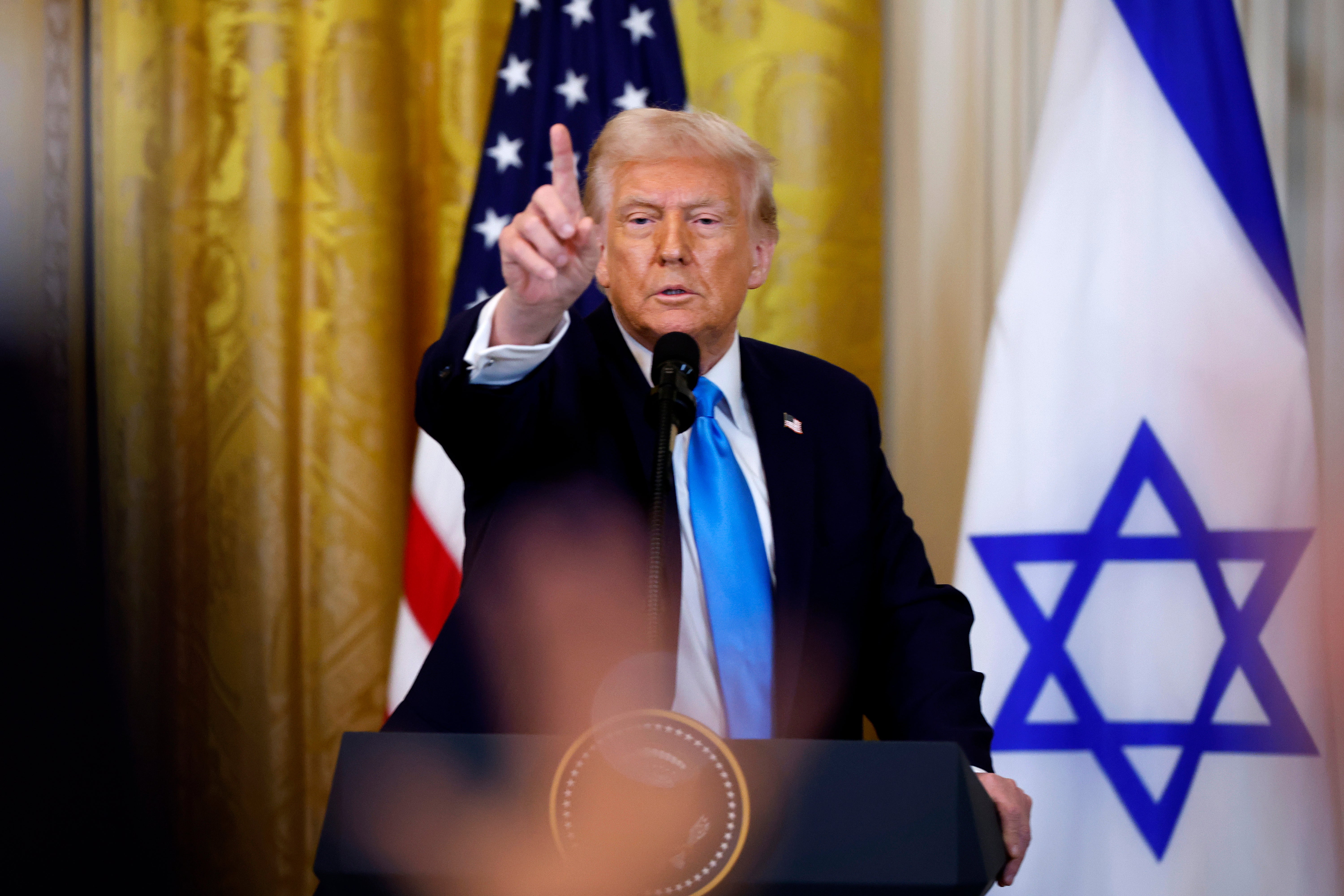The commander of the most powerful military force the world has ever seen announced his intention to annex sovereign territories on three different continents, and no one quite knows whether to believe him or not.
Just weeks into his second term, Donald Trump has said he would like to make Canada the 51st state, threatened to take over Greenland, regain ownership of the Panama Canal, and assume control of Gaza.
At least one of those proposals would require the ethnic cleansing of nearly two million people. The others would likely involve some kind of military force.
If Vladimir Putin said it, the Security Council would have already met to condemn the Russian leader and push for binding resolutions. NATO jets would be scrambled. The Pentagon budget would double overnight along with Raytheon’s stock price.
Instead, Trump’s imperial ambitions have been met with a shrug, both at home and abroad.
There’s a touch of the Twilight Zone to the predicament the world finds itself in. A mad king is threatening war every other day and world leaders can only chortle in response, or avoid it altogether.
In their defense, it’s hard to know how seriously to take Trump’s threats. He has made it known that hyperbole is a central part of how he negotiates.
The Art of the Deal is full of such wisdom: “The final key to the way I promote is bravado. I play to people’s fantasies. People may not always think big themselves, but they can still get very excited by those who do. That’s why a little hyperbole never hurts.”
That certainly appeared to be at play in the first shots of his economic warfare against America’s closest neighbors. The threat of tariffs on Canada and Mexico was quickly withdrawn when he felt he had extracted concessions, after all.
The day after Trump had posited sending thousands of American troops to rule over Gaza, White House press secretary Karoline Leavitt seemed to suggest it was just another case of blue sky thinking, describing it as “an out-of-the-box idea.”

But there is no mistaking that Trump is serious about relaunching the United States as an imperial power.
Speaking at his Inauguration, he said: “The United States will once again consider itself a growing nation, one that increases our wealth, expands our territory.”
The U.S. of course has a long history of imperial adventures, in South America, the Middle East, and in Asia. And George W. Bush did more than talk about taking over countries.
What makes Trump’s plan difficult to pin down is that there appears to be no unifying strategy behind his land grabs beyond a property developer’s eye for prime real estate.
Trump said American control of Gaza would help it become “the Riviera of the Middle East,” pitching it as an exciting business opportunity rather than a war crime.
His efforts to capture Greenland have been just as clumsy, and seem to be reliant on Europe bending to his will like a Republican congressman in a red state.
The only outcome of his pressure on Canada has been to infuriate the most polite nation on the planet, so much so that its citizens are now booing the American national anthem.
One characteristic they all share is that they belong to much smaller, militarily weaker countries. True to form, Trump has refrained from attacking anyone who could put up a fight.
It’s also unclear where Trump acquired his sudden thirst for more land. For years he has billed himself as an America First isolationist, promising in several campaigns to “end endless wars”.
But in his second term — presumably his last, but who knows — he has thrown caution to the wind.

It was said that Putin’s sudden desire to expand Russia’s borders by seizing parts of Ukraine was the result of him isolating himself during the coronavirus lockdown and devouring dozens of history books. He emerged from his bunker invoking the 18th-century Russian tsar Peter the Great, with a burning desire to restore former glories.
Trump is not known to be a voracious reader — or even a reader — so where did he get his inspiration from during his years in exile from Washington?
He has always admired strongmen and tyrants, and often wondered aloud why he could not play the same imperial games as Putin and his ilk. Could it be that he grew envious of the Russian leader as he captured Ukrainian lands?
There is another, simpler explanation.
The president has always thrived on attention, and he knows that he needs to constantly raise the bar to keep it. It’s certainly possible that the outrage addict has built up an immunity after all these years, and is chasing the highs of his first term with ever-increasing doses of poison.
That leaves a terrifying prospect: If he has already threatened several wars in his first two weeks in office, where does Donald Trump go from here to get his fix?




